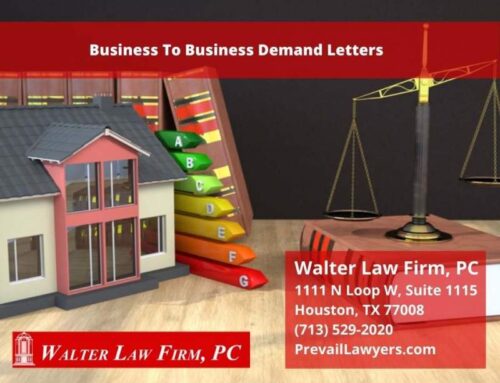How To Collect Debt Effectively
One of the unfortunate truths about running a business is that not all of your customers pay their bills. Besides the occasional legitimate dispute – products or services not ordered, not delivered, or that were defective, some people seem to make a habit of slow-paying or no-paying any invoice they received, so it’s not just you.
The obvious – and often unhelpful – answer is to fire them as a customer. (Yes, Virginia, there ARE good customers.) You can – and should – use written contracts, particularly for significant transactions, and getting partial payment up front will help reduce your risk, but won’t eliminate it entirely. Sending regular invoices and statements of account is also helpful. But what about the situations where the customer has no valid reason for not paying?
Small Business Debt Collection Laws
You should start by reviewing your records – gather a copy of the contract, all those invoices and records of past payments and correspondence with the customer, including the emails and text messages. There are two reasons to do this. First, it provides an opportunity to review the records and make sure you haven’t missed anything. If the account can be resolved without suit, it will be cheaper and quicker to do so. Second, you get to make sure that you have everything you might need if you do have to file suit. So, if in your review, you find that you have somehow not invoiced some of the work, or have missed crediting a payment, now is a good time to correct that problem.
How To Collect Debt From Customers
 Next, send a letter to the customer, preferably by certified mail, return receipt requested, AND by first class mail, making a demand for payment. Certified mail often gets returned unopened, and sending the same demand by regular mails provides additional evidence of a good address.
Next, send a letter to the customer, preferably by certified mail, return receipt requested, AND by first class mail, making a demand for payment. Certified mail often gets returned unopened, and sending the same demand by regular mails provides additional evidence of a good address.
A demand should be straightforward – a statement of what is due, often with copies of the unpaid invoices or a statement of account, a demand for payment, a deadline, and a simple statement of what you plan to do if the customer does not comply. Skip the arguments, recriminations, and recitation of the many times you’ve tried to contact them. Simple, declarative statements of fact are best.
Sometimes you can add an offer of a discount if payment is made by a stated date, no more than 30 days in the future; but that should be reserved exclusively for customers whom you don’t want to sue because of some dispute, the small size of the account, or because they are not likely to be able to pay a judgment.
When the deadline passes without a satisfactory response, follow through on what you said you would do in your demand. If you don’t, your now ex-customer knows you don’t really mean what you say, and that’s a prescription for more trouble. If you’ve said you are going to refer the account to an attorney, just do it.
What To Do If A Business Owes You Money
Last, after you’ve referred the account, Stop Talking to the Customer! Non-paying ex-customers will often call you as soon as they receive the first communication from the lawyer – because they’d rather deal with you. And they’d rather deal with you because they’ve successfully avoided paying you for months, and they’d like to continue doing exactly that. Let your lawyer handle the case – we’ll tell you when we think it makes sense to make a concession and when it doesn’t, and we’re a lot less sympathetic to whining.
If you have a customer who isn’t paying, give us a call, because
It Feels Good to Prevail!
Our Houston Office
You May Also Be Interested In…
- Having A Lawyer On Retainer
- Residential & Commercial Real Estate Attorneys
- Transferring Real Estate To Spouses





